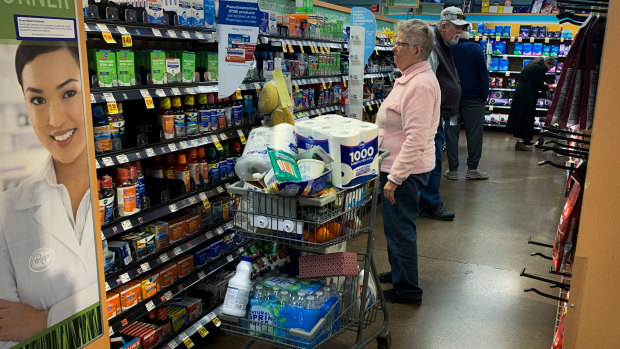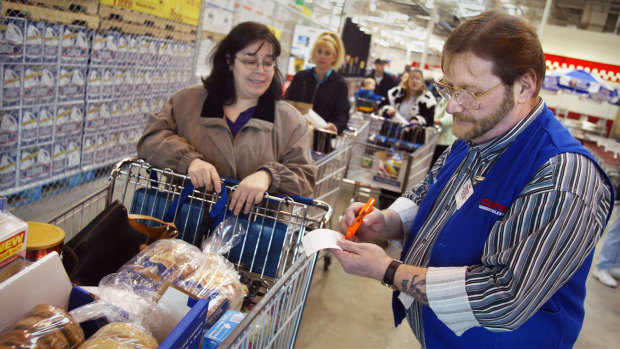
The uncertain nature of the United States economy has forced more people into looking for bargains. That might be because people have lost their jobs, fear losing their jobs, or just because caution makes sense when bad economic times are either here or could be on the horizon.
There's also the matter of inflation and lingering supply chain problems driving prices higher. Yes, those numbers have begun to come down, which even Walmart WMT CEO Doug McMillon has acknowledged, but prices are still higher than they were before the covid pandemic.
DON'T MISS: Walmart shares a warning for customers
Higher prices everywhere have driven some customers away from traditional grocery chains to lower-cost options. That's something Walmart CFO John David Rainey addressed during the chain's first-quarter earnings call.
"Share gains in grocery continued, including from higher-income households, as our strong price gaps resonate with customers who are increasingly prioritizing value and convenience," he said.
Costco has also been open on its earnings calls about how while inflation has decreased, pricing pressure remains. That has forced both chains to take lower margins in order to hold onto (or even gain) market share.
it's a difficult time for any player in the grocery space, but lower-cost options like Costco (COST) -), Walmart, and through sheer buying power, Kroger (KR) -) (although it's not a traditional low-cost player) have an advantage. It's a case where bigger has proven better and larger chains can leverage their size to get better prices which they can pass on to their customers.

Image source: Tim Boyle/Getty Images
Aldi becomes a bigger grocery player
Aldi, a German grocery chain, has been building its presence in the United States, specifically the Southeast, and now has over 2,000 American stores. The chain is based on offering low prices and has been recognized as the number one grocery chain in price according to the dunnhumby Retailer Preference Index Report for the past six years.
The chain competes with Walmart, Costco, Kroger, as well as regional giant Publix. Now, it has made a major move to accelerate its growth. The company has reached an agreement to buy Winn-Dixie and Harveys Supermarket as part of a larger divestiture of their parent company Southeastern Grocers to various entities.
“Like Aldi, Winn-Dixie and Harveys Supermarket have long histories and many loyal customers in the Southeast and we look forward to serving them in the years to come,” said Aldi CEO Jason Hart said in a press release.
The company plans to operate the stores and add 120 new Aldi locations in the coming year. Some of the locations, which are spread across Alabama, Florida, Georgia, Louisiana, and Mississippi, will be rebranded with the Aldi name.
“Aldi will operate Winn-Dixie and Harveys Supermarket stores with the same level of care and focus on quality and service, as we also evaluate which locations will convert to the Aldi format to better support the neighborhoods we’ll now have the privilege of serving,” added Hart. “For those stores we do not convert, our intention is that these continue to operate as Winn-Dixie and Harveys Supermarket stores.”
The sale is expected to close in the first half of 2024 and is subject to regulatory approval.







